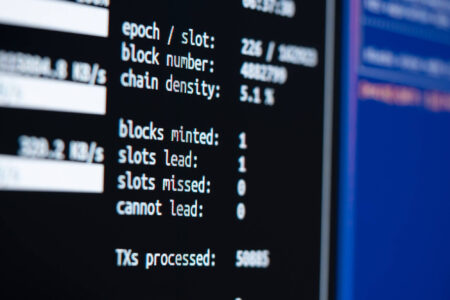The collapse and "contagion effect" on the crypto markets has prompted the European Central Bank (ECB) to call for expanded regulation. Even before the Markets in Crypto Assets Regulation (MiCA) has come into force, Christine Lagarde calls for an extension to DeFi, Lending and Staking.
The new MiCA regulatory framework, which has been under discussion since its introduction in 2020, covers the areas of transparency, disclosure, authorization and monitoring of transactions by service providers. Its primary aim is to create a uniform approach across all 27 member states.
Presumptuous successes
In a hearing of the European Parliament's Committee on Economic and Monetary Affairs, ECB President Christine Lagarde referred to her involvement against Facebook's Libra/Diem. She said it had been helpful in deterring some players from getting involved with crypto companies. For her, as a central bank director, stablecoins in particular are an area to watch. She describes the situation around FTX as a reliability and stability issue for the exchange.
However, with the growing interest in digital assets, the ECB should intervene as a global regulator. With MiCA, Europe is one step ahead of the other jurisdictions. This is not the end of the story, there needs to be a rapid expansion with MiCA II. The more far-reaching proposal is urgently needed to make what is already regulated more comprehensive and to supervise companies.
Expansion to Staking and Lending
Just a week after the Celsius insolvency concerns in June, Christine Lagarde expressed the need for stricter oversight of this part of the crypto market. MiCA II should regulate crypto-staking and lending activities. She believes that this trend requires additional regulatory efforts from the European Union. Alluding to the regulatory package that was then still making its way through the legislature, she minted the term "MiCA II" for these measures.
Lagarde warned of the risks posed by the lack of regulation in this market segment. The innovations in such unexplored areas are a risk for consumers, she said. The lack of regulation allows fraud, completely unlawful valuation claims as well as speculation. It also hides criminal business.
Staking also attracted particular attention from the ECB president. Since stakers are rewarded for their token deployment in a proof-of-stake (PoS) protocol, she said, it is equivalent to an interest payment. Separately, she also mentioned decentralized financial applications (DeFi), which she believes pose a real risk to financial stability and should therefore be covered by a separate regulatory framework.
Would MiCA have prevented FTX?
Some European Union (EU) officials claim that their groundbreaking new legislation (MiCA) would have prevented FTX-style collapses. This viewpoint is doubted by some market participants. After all, offshore companies could continue to operate within the block - MiCA aside. Companies like FTX, based in the Bahamas, would still be able to serve EU customers without additional regulation.
Industry representatives therefore see the current EU registration as an unfair disadvantage for EU companies. Physically present companies must comply with all these principles, rules and regulations, while "reverse solicitation" continues to allow offshore companies. Their services and products can still be used by EU customers in a self-determined manner. Thus, if the MiCA framework is too strict, it could even have the opposite effect and drive companies out of the EU.








